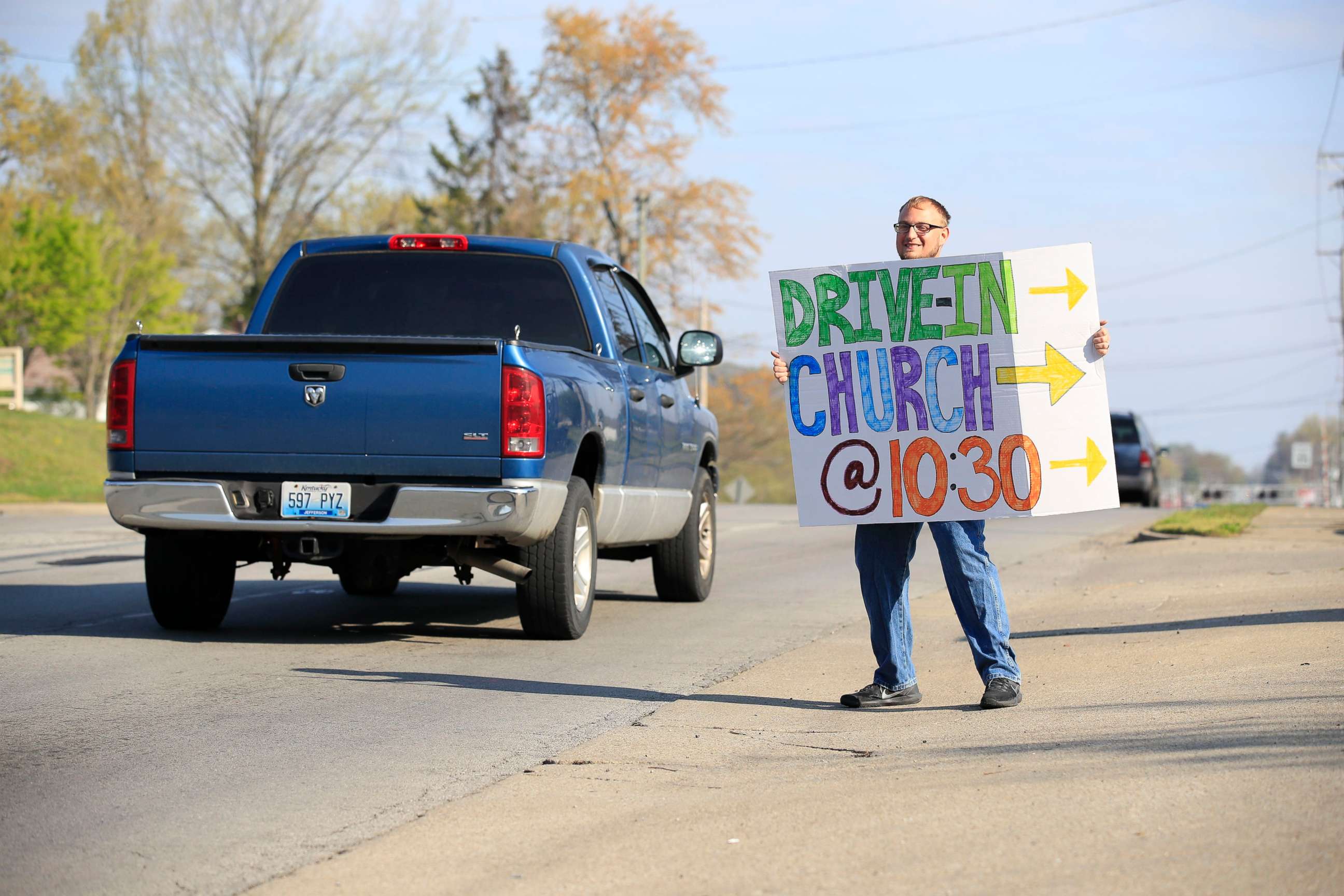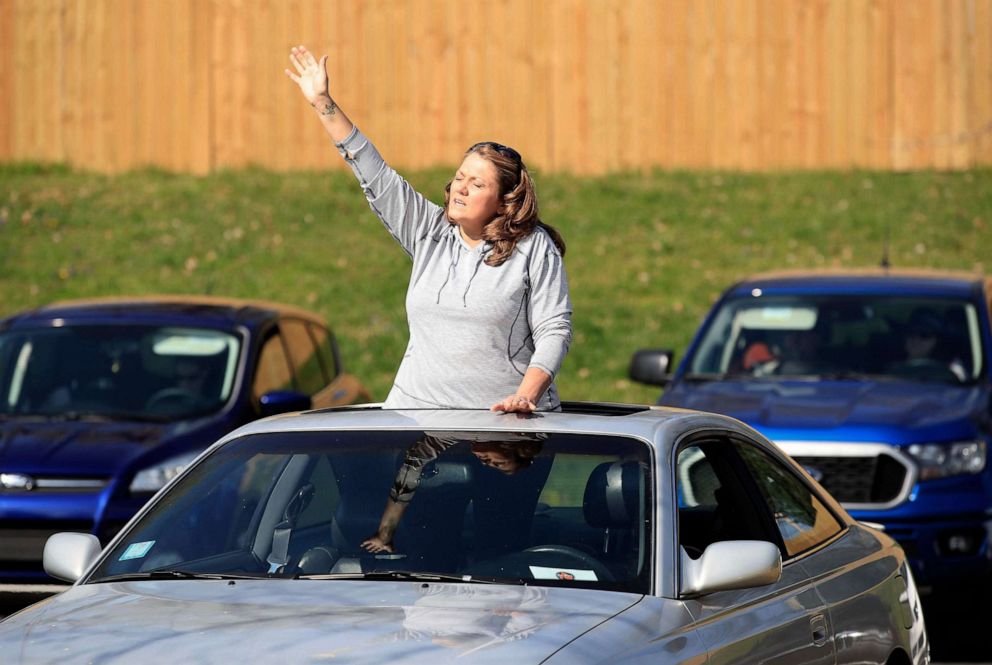Kentucky governor asks churches to close on Easter; judge overrules Louisville mayor's order to stop drive-in service
Despite mass gathering ban, six churches are expected to have in-person service.
Amid a fight in several places around the country to open churches on Easter despite novel coronavirus restrictions, a federal judge overruled Louisville, Kentucky, Mayor Greg Fischer's decision to ban all services, including drive-in church.
Judge Justin Walker, of the Western District of Kentucky, issued a temporary restraining order against the city of Louisville Saturday afternoon in a case filed by On Fire Christian Church.
Walker admonished FIscher's restrictions, announced on Thursday, writing, "On Holy Thursday, an American mayor criminalized the communal celebration of Easter. That sentence is one that this Court never expected to see outside the pages of a dystopian novel, or perhaps the pages of The Onion."
"But two days ago, citing the need for social distancing during the current pandemic, Louisville’s Mayor Greg Fischer ordered Christians not to attend Sunday services, even if they remained in their cars to worship -- and even though it’s Easter," the decision continued. "The Mayor’s decision is stunning. And it is, 'beyond all reason,' unconstitutional."
The mayor had said in a briefing Friday, "In order to save lives, we must not gather in churches, drive-through services, family gatherings [and] social gatherings this weekend."

Fischer's decision was in opposition to Kentucky Gov. Andy Beshear, who had said quarantine does not apply to drive-in services complying with CDC guidelines.
Still, the governor has stepped up efforts to prevent churchgoers from attending any in-person mass gathering services this weekend by enforcing misdemeanor violations related to preventing the spread of the coronavirus.
Beshear announced during his daily COVID-19 press conference that the state police will be recording the license plate numbers of any vehicles seen at the gatherings and the owner of the car will be notified by local health officials that they were in violation of the emergency orders issued by state officials.
Those associated with the vehicles will be required by health officials to go into self-quarantine for 14 days.

"This is the only way we can ensure that your decision doesn’t kill someone else," said Beshear on Friday.
Stay-at-home orders, social distancing and quarantining are all recommendations health officials have given to people in order to prevent the spread of the coronavirus, formally known as COVID-19. As of Friday evening in Kentucky, almost 1,700 people were tested positive for the coronavirus and 90 residents have died.
Among the 90 deaths, Beshear noted that two were traced back to a church revival in Hopkins County last month.
While several faith leaders in the community have conducted remote services and encouraged their members to worship at home, officials are aware of six churches that are planning to have in-person service, Beshear said.
"Folks, we shouldn’t have to do this," said Beshear. "What we’re asking is for you to love your neighbor as yourself. We shouldn’t have to do this."
What to know about coronavirus:
- How it started and how to protect yourself: Coronavirus explained
- What to do if you have symptoms: Coronavirus symptoms
- Tracking the spread in the US and Worldwide: Coronavirus map
In a fight over church services in Kansas, the state's Democratic governor, Laura Kelly, earned a victory against a Republican-led legislative panel, which had tried to overturned Kansas' ban on gatherings over 10 people, including church.
The Kansas Supreme Court ruled late Saturday that Kelly's order will remain in place.
ABC News' Matt Foster contributed to this report.




